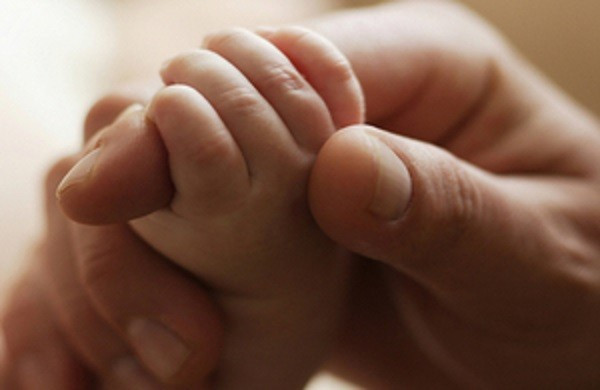Three-parent babies: First child could be born next year after preclinical trial success
"Three-parent babies" could soon become a reality after a controversial fertility treatment against mitochondrial disease proved safe and successful in pre-clinical trials.The IVF-based technique, known as "early pronuclear transfer" was created to help mothers avoid passing on defective mitochondrial DNA to their offspring.
In the UK, about one in 200 babies develop mitochondrial disease. Mitochondria are organelles responsible for creating the energy needed by the cells to function. They are found in the body of every living cells, separated from the nucleus which holds the nuclear DNA – the genetic characteristics inherited both from the mother and the father.
Within the mitochondria, specific mitochondrial DNA is also found. It is necessary for normal mitochondrial function, and is defective in children who have the disease.
"Early pronuclear transfer" involves removing the nucleus of a fertilised egg and transferring it into a nucleus-free egg from a donor with healthy mitochondria. The embryo thus inherits the genetic characteristics of both his parents, while avoiding the mother's defective mitochondria.
While the method has raised a number of ethical concerns, the latest study published in the journal Nature, suggests there should be no worries about its technical feasibility nor about the risks for embryos' safety.
No more genetic anomaly or birth defects
Scientists from the Wellcome Trust Centre for Mitochondrial Disease at Newcastle University tested the technique, using 500 eggs from 64 donor women. They found that it led to normal pregnancies and embryo development, whilst also reducing the risk of babies having mitochondrial disease.
To reach this conclusion, the scientists analysed thousands of genes in embryo single cells. They compared them to embryos born from traditional IVF, detecting no difference between the two types of embryos.
Embryos created through the "early pronuclear transfer" were also no more likely to suffer from genetic anomalies, birth defects, or miscarriage.

Mitochondrial disease risk is reduced
The risk of transmitting mitochondrial DNA was also greatly reduced, though not completely, as research on stem cells derived from the embryos has revealed. In some cases, defective mitochondrial DNA still ended up in the embryo, because residues from the fertilised egg stuck to the nucleus when it was extracted.
However, the scientists showed it was possible to conduct a very precise extraction of the nucleus, which considerably decreased the risk of developing the disease. Thanks to this, up to 79% of all the embryos created with the technique had less than 2% mitochondrial DNA in their cells. In nearly half of those, no faulty DNA was detected.
The bottom line is that the risk of transmitting mitochondrial disease through this technique does exist, but it is much lower than if people decide to conceive naturally.
Waiting for approval
The results of this study have now been submitted to the Human Fertilisation and Embryology Authority's (HFEA) Expert Scientific Panel. The HFEA will now have to decide whether there is enough evidence that the technique is safe to use, and whether they should issue the first licence to a clinic. The first baby could be born using this technique before the end of 2017.
For families who have been affected by the disease, it would be a step forward. "It's really amazing to think that soon parents could have the opportunity to extend their family using this technique, after this study found no safety issues, and researchers think there's a good chance it can prevent mothers from passing on mitochondrial disease to their children", Liz Curtis, CEO of the Lily Foundation, a charity supporting families with mitochondrial disease, told IBTimes UK.
"I lost my daughter Lily to mitochondrial disease 9 years ago, and it's too late for me to think about another baby, but for so many families this technique is their only chance of having a baby born free of mitochondrial disease".
© Copyright IBTimes 2025. All rights reserved.






















